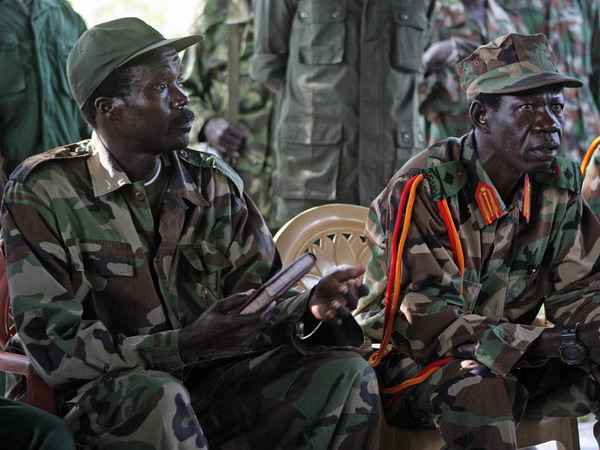Uganda là:..........
Hãy nhập câu hỏi của bạn vào đây, nếu là tài khoản VIP, bạn sẽ được ưu tiên trả lời.


Đáp án là A. for + khoảng thời gian => ta dùng thì hiện tại hoàn thành hoặc thì hiện tại hoàn thành tiếp diễn.

Đáp án : C
Đây là thì hiện tại hoàn thành với dấu hiệu nhận biết for + khoảng thời gian (many years)
Thế nhưng hành động này đã diễn ra trong nhiều năm và vẫn đang tiếp tục ở hiện tại, cho nên ta sử dụng thì Hiện tại hoàn thành tiếp diễn.

Đáp án : A
for + khoảng thời gian => ta dùng thì hiện tại hoàn thành hoặc thì hiện tại hoàn thành tiếp diễn.

1. This school is in Kenya.
(Trường học này ở Kenya.)
2. The school is for girls living in villages.
(Trường học này dành cho các cô gái sống ở làng quê.)

You are going to read the first part of a newspaper article about gorillas in Uganda. Choose the most suitable heading from the list A - H for each part (1 - 6) of the article. There is one extra heading that you do not need to use. There is one example at the beginning (0).
Gorillas in Uganda’s mist
(0) BLACK furry face stared out through the branches. Wide-eyed innocence tinged with mischief. After an hour and a half of hacking through forest, I was face to face with the mountain gorillas of Uganda. For 25 minutes I gazed, transfixed, hardly daring to breathe as two youngsters played out their daily lives, seemingly oblivious to the wonder-struck intruder.
=> F. The gorillas’ reaction to seeing the author
(1) Bwindi Impenetrable Forest, in the south-west, hides a remarkable secret. Designated a National Park in 1991, this magical, mist-shrouded area is home to roughly 300 mountain gorillas – half the world’s population.
=> D. The location
(2) They are split into 23 groups, two of which are now habituated to human presence. The Mbare troop consists of 13 animals. The group was named after the hill – the word means rock in the local dialect – on which they were first spotted.
=> B. Meeting the gorillas
(3) Six females and six young are led by the silverback male Ruhondezh – literally one who sleeps a lot. Ruhondezh, his back seemingly as wide as a bus, was magnificent. And it was clear that food, rather than sleep, was on his mind as we watched.
=> C. The leader of the group
(4) One minute, he munched contentedly on the vegetation while members of his family played in the branches above. The next, displaying his 8ft reach, he brought a huge branch crashing down to provide more sustenance.
=> H. What the leader of the group did
(5) Being so close to such impressive wild animals brings all your senses to life. In our passive, modern world, it is all too easy to lose touch with these primeval feelings. But in the heart of Africa, crouching just 15ft away, basic instincts rule. I felt a tremendous privilege at being allowed to share, even for a brief time, the lives of these gentle animals, which are on the edge of extinction.
=> E. Appreciation of a unique experience
(6) To ensure their survival, the local people must feel there is some worth in keeping the gorillas. To such an end, the park authorities are currently engaged in revenue sharing. A percentage of the money raised from allowing tourists to view the gorillas is ploughed back into the community. In this way, it is hoped the gorillas will be seen as a source of income to be protected. But even so, the long-term survival of one of man’s closest relatives hangs by a thread. Poaching is still one of the biggest dangers.
=> G. What is done to protect the gorillas
P/s: Mình không dám chắc là đúng hay sai nhưng bạn nên thử dịch lại xem nhé!

Là một quốc gia ở Châu Phi bạn nhé